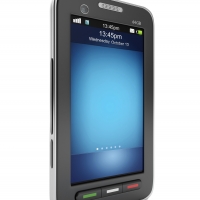Is There Room for a Third Mobile Operating System?

iOS and Android undoubtedly have a dominating presence in the mobile operating system world and in their associated app stores. The market shares for each of them keep varying over time, but the two together have such a strong hold that the question remains: Is there space for a third player?
With the fall of Blackberry, the possible player who can take on this position is Microsoft, who has been trying vigorously during the past few years to move up the mobile ladder.
Microsoft has been taking a number of steps to gain ground—leadership changes, its multibillion dollar purchase of Nokia, and strategies such as holding off the release of Office for iOS and Android platforms.
The market continues to speculate whether such reverse strategies—trying to leverage the established market for Office and not making it available for iOS and Android—would really help Windows draw more users or would further jeopardize its position by making people get used to a space without Office. Similarly, the market has a divided belief on its purchase of Nokia since the phone maker has a greater market share in the feature phone world than in the smart world where Microsoft is trying hard to compete.
From a market standpoint, the good news is that there are two dominant players, and neither is heading toward a monopoly as Windows was in the PC world. It would be exciting to see a third player with a sizeable share because options are always exciting for end users. Some experts predict that in a few years Windows will become a viable third mobile operating system; others continue to defy it.
Android’s co-founder, Rich Miner, recently stated that he was inspired to start the open source mobile operating system primarily because of Microsoft’s dominance in the PC world. Speaking of the current reigns of iOS and Android does not mean that these two are in a picture perfect world. For example, iOS and the tightly coupled iPhones are still considered very expensive in many global markets and thus unaffordable. In the meantime, speculation around an Amazon-backed smartphone continues to hit the market every now and then.
Mobile computing with a heavy focus on end user usability is no more a thing of the past—it is a current day need. Time will tell how the competition and market share in this space will shape up and whether there will be room for a third dominant player. But it is heartening to see that the push and pull between existing players forces each of them to give their best to end users without yielding to a monopolistic market.

